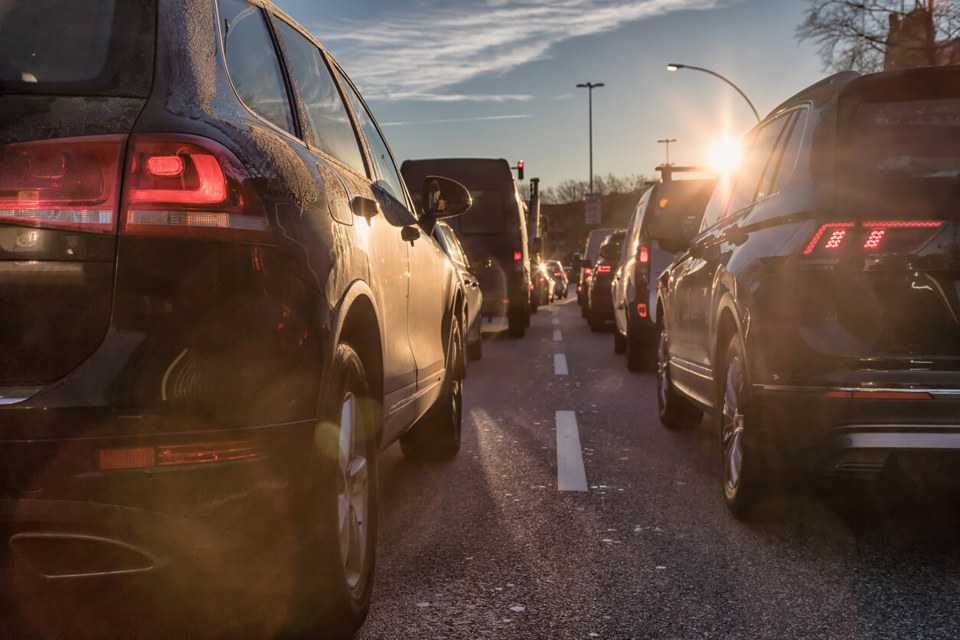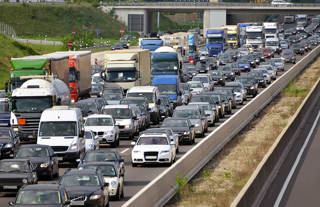More than £400 million extra each year could be spent by councils on improving local roads if Government funding mirrored rising income in fuel and motoring taxes, the Local Government Association (LGA) has claimed.
Council leaders are calling for the Government to carry out a radical new strategy to provide a fully-funded plan for the growing number of vehicles on the nation’s roads – which has risen by 30% since 2000.
Nearly eight-and-a-half million more vehicles are now on the road, adding to congestion and road maintenance issues, such as potholes, wear-down of road markings, and increasing general wear and tear.
New LGA analysis shows that if the Government matched the increase in fuel and motoring tax income generated in the last 10 years town halls would have an extra £418m to spend on local roads. This would help them reduce congestion, improve air quality, contribute towards tackling the country’s £12 billion road repairs backlog and encourage residents to use alternative transport where possible.
The call comes as the LGA sets out the impact of the nation’s “congestion crunch” on local roads:
- Road space is limited. There are now 151 vehicles per mile on our roads compared to just 119 vehicles per mile in 2000, ratcheting up the pressure on local roads.
- Travel speeds are down. The average travel speed on local ‘A’ roads is just 25 miles per hour, a 1% decrease from a year ago.
- The maintenance and repair of roads is another serious challenge facing councils. Councils fill a pothole every 19 seconds and are dealing with a £12bn backlog of road repairs that would take a decade to clear.
The Government’s recent decision to share a proportion of the Roads Fund, to support local roads, has long been called for by the LGA. However, in order to make sure roads are equipped to handle the increase in vehicles and forecast increase in traffic by up to 55% by 2040, the Government needs to be more ambitious to support councils to keep traffic moving, it says.
Ahead of the Autumn Budget next month, the LGA is also calling for the Government to fully fund the statutory concessionary bus fares scheme. Years of underfunding mean councils are being forced to subsidise the scheme by at least £200m a year.
Mileage on council supported bus services decreased by 12% between 2014/15 and 2015/16. To reverse this sharp decline, LGA said councils also need to be given control over the Bus Service Operators’ Grant. This fuel duty rebate, currently paid directly to bus operators, would enable councils to protect vital bus routes, and give them the funding they need to provide an efficient and successful bus service.
Cllr Martin Tett, LGA transport spokesman, said: “The vast majority of journeys start or end on a local road – the impact of almost 30% more vehicles cannot be over-stated. Congestion, wear and tear of our roads, and air quality are all affected.
“With eight-and-a-half million more vehicles on our roads since 2000, it’s no wonder our local roads are facing a growing congestion crunch and it would now take £12bn and a decade to clear the nation’s road repair backlog.
“Councils are doing all they can to provide their communities with the transport services they need, to manage and ensure that roads are free-flowing as possible.
“The Government needs to develop a fully funded plan to help councils deliver the desperately-needed local road improvements we need. This should include matching the extra growth in tax take with the funding it provides councils.
“This would see councils given an extra £400m a year to spend on filling potholes, easing congestion and protect vital bus routes. Only with long-term funding can councils deliver roads truly fit for the 21st Century.”





















Phil Creedy - 16/10/2017 11:23
Made a claim for Pothole damage last May against Northamptonshire Count Council. Despite repeated efforts contact them on this subject, still no joy. Think they are just waiting for me to give in and go away as it would be a no cost option.